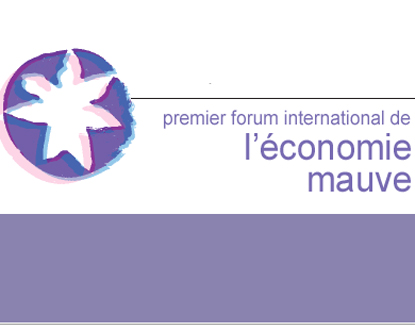1st Forum under the patronage of UNESCO, the European Commission, and the European Parliament,
In the presence of Valérie Pécresse, Minister of Budget, Public Accounts, and State Reform, Government Spokesperson
-The birth of an economy linked to cultural environment
For the first edition of the international forum on the purple economy,
witnesses from various backgrounds gathered to discuss bringing together culture, economy, and sustainable development.
Quoting Valérie Pécresse, who spoke on this occasion,
culture in France suffers from isolation from the economy,
just as in education and research, “we have overly ‘bunkered’ specializations in human and social resources, moving them too far from the economic field and the sphere of science.” Beyond opportunities derived from adaptation to diversity, according to Valérie Pécresse, “culture is a key element on which we build a great economy.”
More broadly, many observers have considered that the economic
crisis was a symptom of cultural marginalization.
However, as Bernard Ramanantsoa, General Director of HEC Paris, reminded, “we must return to a definition of humanity: for simplicity’s sake, humanity in globalization has too often been presented as a sum of economic interests. It certainly is that, but it is above all a shared memory among different cultures.
Forgetting that is probably at the root of the economic crisis.”
According to Mercedes Erra, President of Euro RSCG Worldwide, it’s a fact
that today “people need to recreate meaning, a direction.
Culture, in some ways, is one of the reasons for human orientation,
and that’s what people deeply seek.” “What will drive
business today, what will ensure its performance,
and the demand that will be placed on a business is a demand
that will also become cultural.”
Over the course of three days, the forum was an opportunity, beyond sectors
where it is easier to understand—culture, food, tourism, construction, or luxury—to highlight that every activity impacts the cultural environment.
This “cultural footprint” may be pursued as a primary focus or not. It’s the case of a car manufacturer, who today aims primarily to produce a vehicle but still has a cultural influence through decisions made in design, advertising, and many other considerations. In this field of secondary cultural impact lie unexplored reserves for sustainable growth, which will involve defining products that consider the cultural dimension more fully.
In response to this culturalization of the economy, several European and non-European speakers noted Europe’s considerable assets: cultural credibility and the ability to “cope” with diversity.
The purple economy, which relates to the enhancement of the cultural environment and does not only refer to the economy of culture, by definition, has a transversal character. It could be one of the responses to the crisis, in terms of meaning and opportunity.
The next edition of the international purple economy forum, which will take place in 2012 in São Paulo, aims to build a sustainable economy attentive to the cultural environment, as well as the natural and social environments.


